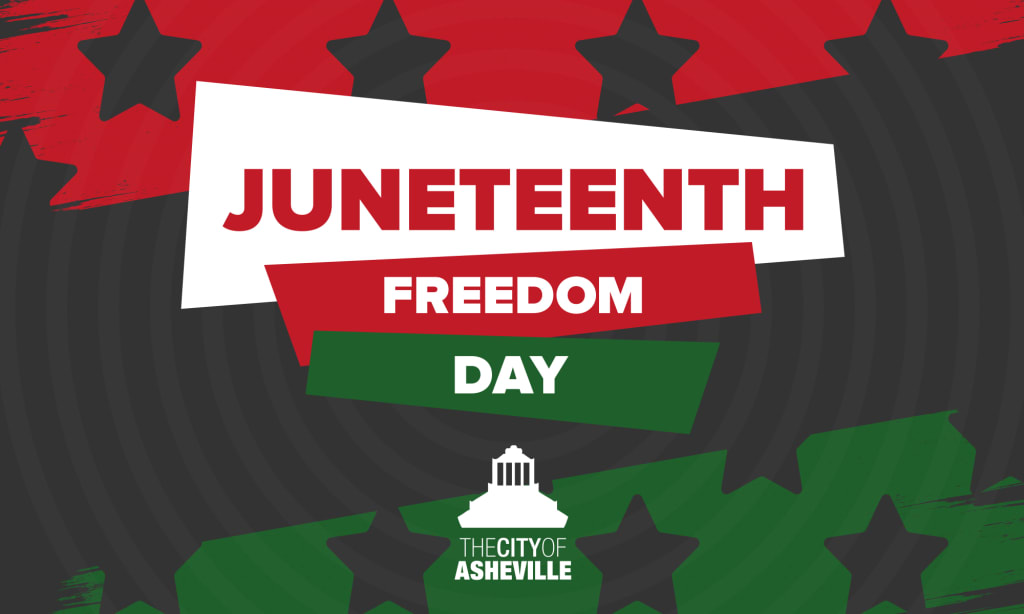JUNETEENTH, WHAT YOU NEED TO KNOW!
JUNETEENTH, THE PAST, THE PRESENT AND THE FUTURE....

On June 19, 1865, Union General Gordon Granger arrived in Galveston, Texas, and issued General Order No. 3, which declared that all slaves in Texas were free. This announcement came more than two years after the Emancipation Proclamation was signed by President Abraham Lincoln. While the Emancipation Proclamation had technically freed the slaves in Confederate territory, it was not until Granger's arrival in Texas that the news reached all enslaved individuals in the state.
Juneteenth, also known as Freedom Day or Emancipation Day, is a holiday celebrated in the United States on June 19th each year. It commemorates the emancipation of enslaved African Americans and recognizes the end of slavery in the United States.
Juneteenth celebrations often include various activities such as parades, cookouts, historical reenactments, music, and educational events. It serves as an opportunity to reflect on the struggles and achievements of African Americans, honor their ancestors, and promote equality and freedom for all.
In recent years, there has been a growing movement to recognize Juneteenth as a national holiday. On June 17, 2021, Juneteenth National Independence Day Act was signed into law, making Juneteenth a federal holiday in the United States. This designation acknowledges the significance of Juneteenth in American history and provides an official day of observance for the entire country.
The significance of Juneteenth on citizens is multifaceted and impactful in several ways:
Commemoration of Freedom: Juneteenth serves as a powerful reminder of the emancipation of enslaved African Americans and the end of slavery in the United States. It allows citizens to reflect on the struggles and sacrifices of their ancestors who fought for freedom and paved the way for future generations.
Celebration of African American Culture: Juneteenth provides an opportunity to celebrate African American culture, heritage, and achievements. It is a time to honor the contributions of African Americans in various fields such as art, music, literature, science, sports, politics, and more. The holiday showcases the rich diversity and resilience of the African American community.
Education and Historical Awareness: Juneteenth promotes education about the history of slavery, the Civil War, and the ongoing struggle for civil rights. It encourages citizens, particularly young people, to learn about this crucial chapter in American history and gain a deeper understanding of the legacy of slavery and its impact on society.
Reflection on Progress and Challenges: Juneteenth prompts citizens to reflect on the progress made towards racial equality and justice, as well as the challenges that still exist. It serves as a reminder that the fight for equality is ongoing and encourages individuals to work towards creating a more inclusive and equitable society.
Community and Family Bonding: Juneteenth celebrations often bring communities and families together. It is a time for gathering, sharing meals, participating in cultural activities, and strengthening social connections. These celebrations foster a sense of unity, pride, and belonging among citizens.
Symbol of Hope and Resilience: Juneteenth symbolizes hope, resilience, and the triumph of the human spirit over adversity. It demonstrates the ability to overcome oppression and serves as a source of inspiration for individuals facing various challenges in their lives.
National Recognition and Validation: The designation of Juneteenth as a federal holiday provides official recognition and validation of the historical significance of the holiday. It acknowledges the importance of African American history and culture in shaping the United States as a nation.
Overall, the impact of Juneteenth on citizens is profound, as it promotes awareness, education, cultural celebration, and reflection on the journey towards racial equality and freedom. It fosters a sense of unity, pride, and hope while encouraging continued progress in building a more inclusive society.The future implications of Juneteenth as a federally recognized holiday include:
Increased awareness and education about its historical significance.
Fostered national unity and solidarity around the values of freedom and equality.
Continued dialogue and progress in addressing racial equality and justice.
Cultural and economic impact, supporting African American artists and businesses.
Potential legislative and policy considerations for promoting equality.
International influence, inspiring reflection on historical injustices in other nations.
Overall, Juneteenth's recognition as a federal holiday has the potential to drive positive change, fostering awareness, unity, and progress toward a more inclusive society.





Comments
There are no comments for this story
Be the first to respond and start the conversation.